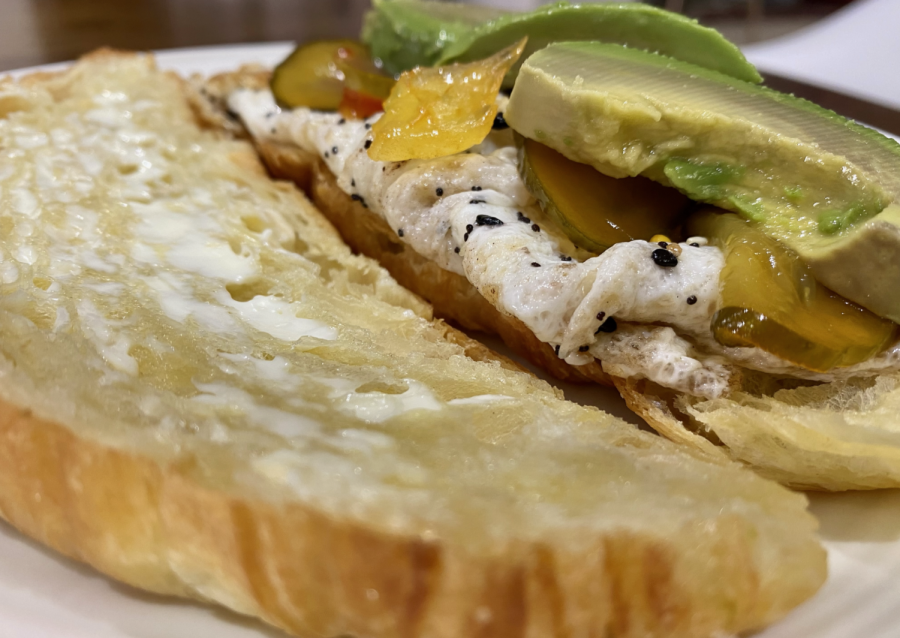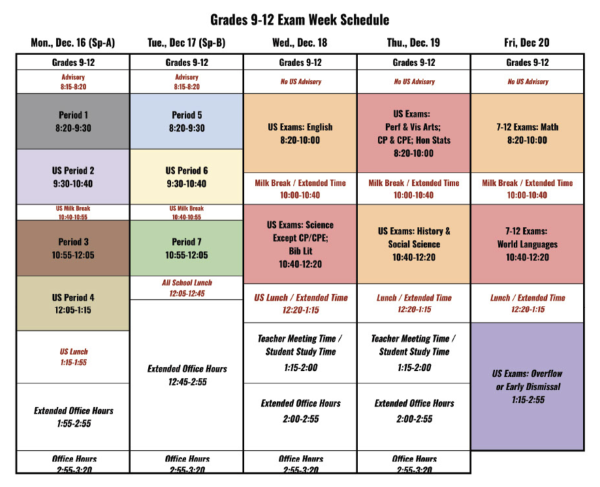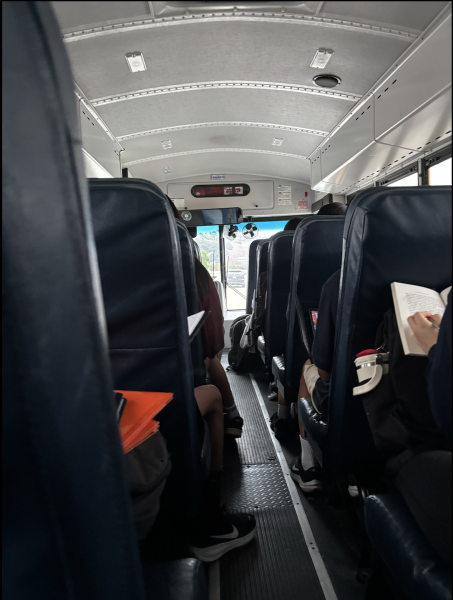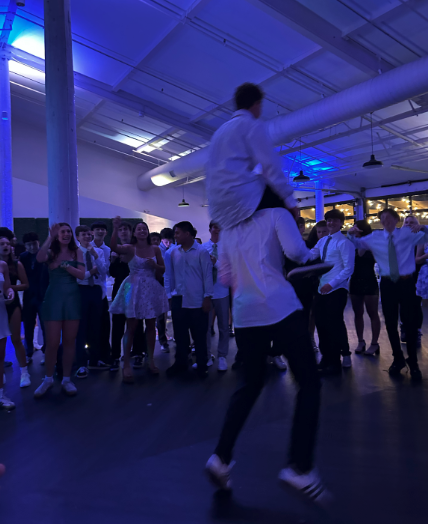AP Weeks: Do’s and Don’ts
Your guide to making it through these next two weeks
This is one of my favorite hearty breakfasts: a piece of toast topped with a fried egg, pickled onions, and avocado. There are a ton of variations you can do on this breakfast for the perfect carb-and-protein-packed meal before you go to kill that AP!
In just a few days, most upperclassmen will undergo two of the best weeks of their life: the AP Weeks! (Sarcasm through the pain? I think yes.) For a lot of us, these two weeks are the ones we’ve been dreading, mainly because we know what to expect. But for those of you who are taking your first AP this year, how should you prepare? What should you bring? Where should you go on test day? To get those answers and more, read on.
How should you prepare?
Do: Review your class notes!
Oftentimes, your class notes are the most valuable tools in studying for a big test. Your teachers know the material back-to-front and -back-again, so reviewing those little mnemonics (AP Science’s LEO says GER, anyone?) or even fun examples to add into your AP essays can prove to be really helpful. Start with more on first semester content, since the second semester should be fresher in your brain!
Don’t: Just read your notes.
Washington University in St. Louis psychologists Henry Roediger and Mark McDaniel said it best: “On your first reading of something, you extract a lot of understanding. But when you do the second reading, you read with a sense of ‘I know this, I know this.’ So basically, you’re not processing it deeply, or picking more out of it. Often, the re-reading is cursory… this gives you the illusion that you know the material very well, when in fact there are gaps.” Try to teach someone else the content you find the hardest to remember or even just set up a camera and talk to yourself. It sounds silly, but it really works.
Do: Get enough sleep!
While some of you may be groaning at this one, it’s vitally important for your success. Try your best to get at least 7-8 hours of sleep. Your brain will thank you and return the favor by better-retaining the info you spent so much effort reviewing. Don’t believe me? The University of Pennsylvania reported that “sleep actually helps students learn, memorize, retain, recall, and use their new knowledge to come up with creative and innovative solutions.” There. Now hit the hay!
Don’t: Waste time on every nitty gritty detail.
Although it may seem like a lot of content that you need to know, remember that the test is only (only…) three hours. The test can’t (and won’t) expect you to know every biologist that ever used animal subjects in their experiments or every U.S. President’s wife’s name. Of course, this doesn’t mean you should just skim over the headings of every chapter: gauge which topics need a little more attention.
Do: Eat a good breakfast in the morning of & hydrate.
We’ve all heard the saying, “Breakfast is the most important meal of the day,” but it’s not just a cliche! English writer Mary Ann Evans (often known as her pen name, “George Eliot”) once said, “no man can be wise on an empty stomach.” Whether that be some hearty cereal or oatmeal, yogurt, an avocado toast, or anything else with a lot of protein and carbs to get your brain going, don’t skip this step! Even for those of you that don’t have that much of an appetite in the morning (I’m in this club too), YOU WILL REGRET IT IF YOU DON’T EAT SOMETHING!
Do: Collaborate with a group! (**not for everyone)
Some students find this helpful, while others find it less so. This point really depends on your learning style. In general, this “Do” is particularly helpful for me when practicing FRQs (Free Response Questions). Remember, the FRQs on most of the APs (like science and history) aren’t looking for you to be wildly creative in your responses: instead, do your best to be exact, concise, and accurate.
What should you bring?
Do: Bring at least two No. 2 pencils and black/blue-ink pens + a stopwatch.
Since you spent so much time and effort surviving the class during the school year and eventually preparing for the test, you may as well take it with AP-approved writing utensils. Since a computer is reading your bubble sheet, NO OTHER PENCIL TYPE WILL WORK. Extra points for being a good friend and bringing extra No. 2 pencils for those that forget! And as long as it doesn’t beep, a stopwatch is also allowed in the AP testing room. This can be really helpful for subjects with longer periods of testing time, especially if you need a little more guidance with time management.
Don’t: Bring any electronic devices (besides an AP-approved calculator if you’re taking a test that allows for one.)
Per AP policy, you’re not allowed to bring any device that has access to the Internet, can take photos, or beeps; otherwise, you will be dismissed from the test. This isn’t a bad thing though — this helps you stay focused on your test and not let other things distract you!
Do: Bring a few snacks.
Even though the School will be providing granola bars during breaks, if you have a specific snack that you think would be best for you during your break, don’t hesitate to grab it! Your goal is to be relaxed and stress-free, and sometimes, your favorite snack can help you achieve that state of zen.
Where should you go?
Do: Look for an email from AP Coordinator Ms. Marianne Kullback!
Shoutout to Ms. Kullback for sending out all of our exam times and rooms! After scrolling down to the bottom of the email, you should see your testing location and if it’s in the AM or in the PM. As it says in the email, if your test is marked as AM, you must be in your room by 7:30 a.m. THE LATEST. If your test is marked as PM, you must be in your room by 11:45 a.m THE LATEST. YOU NEED TO BE ON TIME! If you’re unfamiliar with where your assigned classroom is, make sure to scope out the location a day or two before, so you don’t have to deal with the additional stress the day of.
And the last one…
Do: Feel confident in yourself!
You’ve made it this far through your Honors/AP class; now’s just the time to show all that you know! Take deep breaths, don’t stress, and know that worse comes worse, it’s over in less than three hours. You’ve got this, Knights!

Sydney Chan is an Editor-in-Chief for The Tower dedicated to discovering unique stories and bringing them to life through her pieces. She especially loves...











